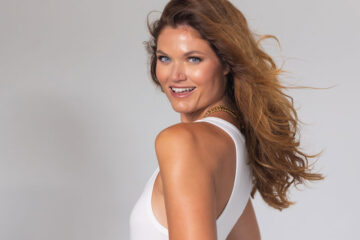Editor’s note: To usher in the new year, we asked more than a dozen women who live across the state to write about their hopes, dreams, and things to keep in mind for women’s advancement and gender equity. Read the full collection of columns here.
By Seeta Lee
We cannot feel empowered if we’re exhausted, hungry and dehydrated. Obvious, right? During my teaching career, one student complained the health section of our college introduction course was “stuff his 3-year-old knew.”
Yet one-third of Americans are sleep-deprived.
We’re not eating enough because the USDA’s recommended daily caloric intake for women is 1,600 to 2,400 calories, yet previous starvation experiments saw harmful signs at the low end of that recommended caloric intake spectrum.
The suggested water intake depends upon what you read. In the last year, I’ve heard we’re supposed to drink half of our body weight. I’ve also heard the long-standing recommendation of at least eight glasses a day is bunk.
If you’re confused, it’s OK. I am too. How could we not be? We receive contradictory systemic messaging. This is why I started teaching self-care, focusing on identifying and reducing harmful social messages and expectations. Sadly, self-care is derided as selfish indulgence replete with spa-day pampering.
Recent backlash toward the self-care industry points out how self-care has become yet another stressor for women, and some memes are canceling self-care, demanding systemic change instead. Unfortunately, commercialization caused this. It skewed useful self-care messages and erased the truth that well-being is determined individually. There’s a reason marketers put the phrase “results may vary” in fine print. Individualization doesn’t sell.
So let’s think of self-care as the reverse of what we’re being sold.
It’s not about how society can fix us. It’s about how the empowered self fosters systemic change. Comedian Eddie Izzard said recently, “There are a number of us out there, trying to get ourselves in a good place, and trying to reach out ― can we help anybody else, bring people up, make connections rather than break them.”
We do this by learning what being rested looks like as reflected in our moods rather than depending on apps, by eating enough until we are satiated rather than counting calories, by drinking water until our urine is mostly clear, rather than measuring the ounces.
When we prioritize our basic needs through self-care, we have the energy, strength and mental sharpness to make a real difference in what’s going on around us.
Seeta Lee is a writer and educator who challenges the status quo.

